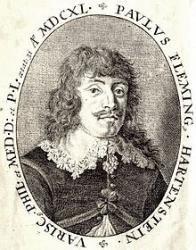1721 - 1793 Person Name: Johann Adolph Schlegel Hymnal Number: d38 Author of "Der am Kreuz ist meine Liebe, meine Lieb' ist Jesus Christ" in Poetischer Himmelsweg, oder kleine, geistliche Lieder Sammlung ... 1. Aufl. Schlegel, Johann Adolf, D.D., son of Dr. Johann Friedrich Schlegel, Appellationsrath at Meissen, in Saxony, was born at Meissen, Sept. 17, 1721. After passing through the famous school at Pforta (Schulpforta), near Naumburg, he studied, from 1741 to 1746, at the University of Leipzig, where he became acquainted with Cramer, Gellert, and Klopstgock, and was one of the principal contributors to the Bremer Beiträge (Neue Beyträge zum Vergnügen des Verstandes und Witzes). In 1746 he became a private tutor at Strehla, in Saxony, and then returned to Leipzig, where he occupied himself in literary work, until he went, in 1748, to live with his friend Cramer at Crellwitz, near Lützen. He remained at Crellwitz till 1751, when he was appointed a master in his old school at Pforta, and also diaconus of the church there. In 1754 he became chief pastor of the Holy Trinity church at Zerbst, and also professor of Theology and Metaphysics in the Academic Gymnasium in that town. He removed to Hannover in 1759, as pastor of the Markt Kirche. In 1775 he was removed to the Neustadt Church there, as chief pastor, and also as Consistorialrath and Superintendent. "While retaining his pastorate at Hannover, he was also appointed, in 1782, as General Superintendent of the district of Hoya. In 1787 he exchanged this for the General Superintendentship of the Principality of Kalenberg. The same year he received the degree of D.D. at the Jubilee Festival of the University of Göttingen. He died of fever, at Hannover, Sept. 16, 1793…
Schlegel was a most prolific writer, though to the literary world at large the names of his song, August Wilhelm and Friedrich von Schlegel, are better known. He was one of the most celebrated preachers of his time, and the author of many volumes of sermons. His hymns suited the taste of the Rationalistic period, and were exceedingly popular in the end of the 18th century, but have now, in great measure, passed out of use. Many of them were merely polished and weakened versions of, or were founded upon, earlier hymns. In his strictly original hymns, he does not at all equal either Gellert or Klopstock.
His hymns appeared in the following collections:—
(1) Sammlung geistlicher Gesänge zur Beförderung Jer Erbauung, Leipzig, 1766; 2nd ed., revised and enlarged, Leipzig, 1772. (2) Zweite Sammlung. Leipzig, 1769. (3) Dritte Sammlung, Leipzig, 1772. (4) Yermischte Gedichte, 2 vols., Hannover, 1787 and 1789 [1, 2, 4, in British Museum; 3 and 2nd ed. of 1 in Hamburg Library.] He edited, and contributed to, the 1792 Appendix to the Hannover Gesang-Buch, 1740.
One of Schlegel's hymns is a translation of, and is noted under "Veni Creator Spiritus." The others which have passed into English are :—
i. Wie herrlich strahlt der Morgenstern. Love to Christ. First published in 1763, as above, p. 112, in 7 st. of 11 1., and entitled, "Longing after union with Jesus, on the model of the old hymn, Wie schon leuchtet der Morgenstern." The trs. in common use are :—
1. How brightly beams the Morning Star! This is a good translation, omitting st. iv., vii., by Miss Winkworth, in her Chorale Book for England, 1863, No. 36.
2. How brightly shines the Morning Star! What eye descries it from afar. A good tr., omitting st. vii., contributed by J. M. Sloan to J. H. Wilson's Service of Praise, 1865, No. 282, and repeated, omitting st. iii., iv., in Wilson's Songs of Zion, 1878.
Hymns not in English common use:—
ii. Es lag die ganze Welt. St. John Baptist's Day. The tr. from Schlegel's recast is "The world enslav'd to sin."
iii. Jauchzt! es ist eine Ruh vorhanden, Sleeping in Jesus. First published in his Vezmischte Gedich, vol. i., 178 , p. 128, in 2 stanzas of 10 lines, dated 1777, and entitled, "Of the happiness of Heaven." Translated as "Rejoice, that rest is not far distant." By Miss Manington, 1863, p. 89.
iv. Mein Jesu, fur dein Herz. Passiontide. First published in 1766, as above, p. 65, in 14 st. of 6 1. Tr. "How trying to the heart." By Dr. H. Mills, 1845, p. 210.
v. Schweigt Stürme! brauset nicht ihr Meere. Summer. This is an Ode, first published in the Neue Beyträge, &c, Bremen and Leipzig, vol. i., 1744, and entitled, " Praise of the Godhead. On the model of the 104th Psalm." It is translated as, "Around me all is joy-—and oh, my God." By Miss Fry, 1859, p. 111.
vi. Tag, der Erleuchtung uns gebracht. Whitsuntide. First published in 1769, as above, p. 42, in 9 st. In some collections, as in the Kopenhagen Gesang-Buch, 1782, No. 282, it begins "O Tag, der uns des Vaters Rath." This is translated as "O day! that hast unto our souls set forth." By Miss Fry, 1859, p. 94. [Rev. James Mearns, M.A.]
--Excerpts from John Julian, Dictionary of Hymnology (1907)
Johann Adolf Schlegel


 My Starred Hymns
My Starred Hymns


